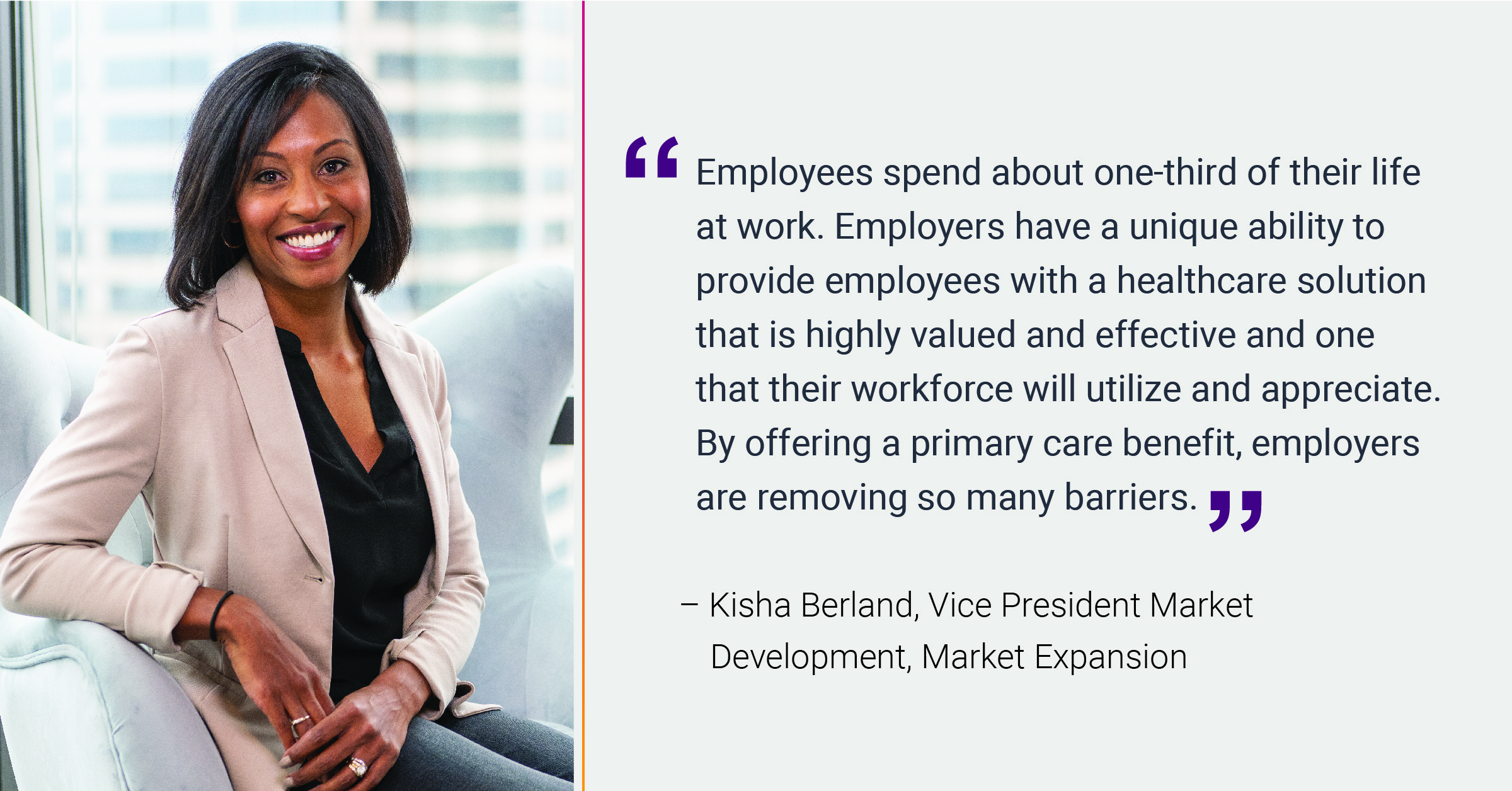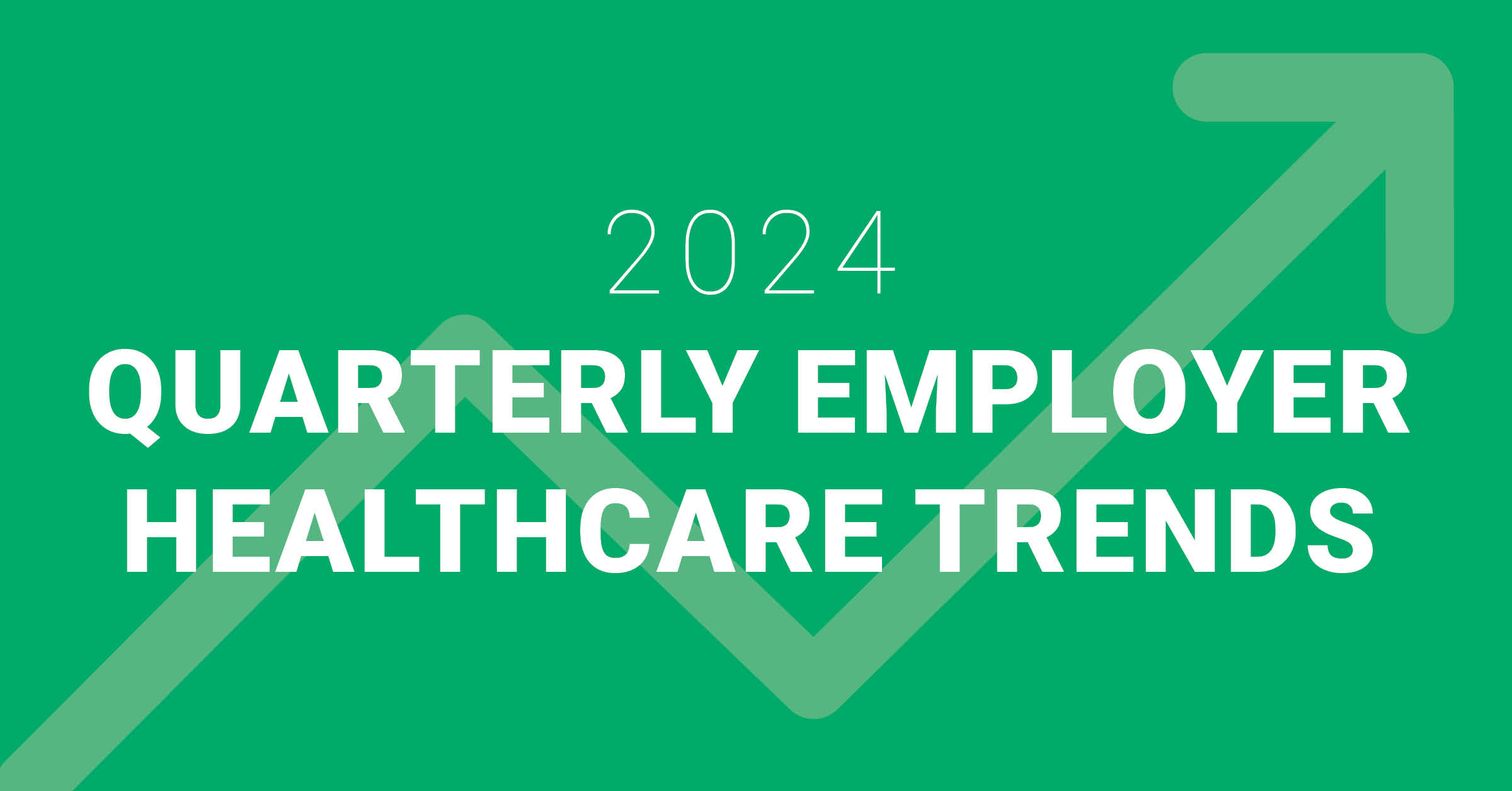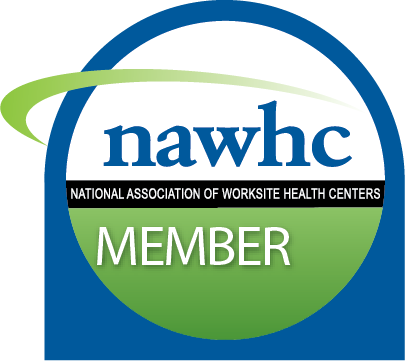Reposted with permission from FirstPerson, now a subsidiary of NFP. Paul Ashley, Senior Vice President and Consultant at FirstPerson recently spoke to Kisha Berland, Vice President of Market Development at Marathon Health.
I recently had the pleasure of interviewing Kisha Berland, Ph.D., MPH, CHES, who serves as the Vice President of Market Development for Marathon Health. Our conversation explored the positive impacts of an on-site or near-site clinic and virtual primary care, plus a discussion of the role a trusted clinical partner plays helping organizations navigate care, decrease costs, and improve the quality of care and outcomes for employers and employees. My conversation with Kisha follows up on my recent piece on the impacts of delayed health care due to the pandemic called Healthcare Deferred. It’s Time to Reset.
Kisha is a first-rate thought leader and partner in this area. You will find her insights to be helpful as you navigate how your health plan “resets” and ensure access and use of high-quality care. Marathon Health provides direct primary care and wellness services to employers focused on high-quality, personalized care to achieve significant health outcomes and cost savings. Marathon Health is an independent organization with over 240 health centers in 42 states.
Tell me about your role with Marathon Health and your career in the health care industry.
After my dad was diagnosed with heart disease at the age of 30, underwent a heart transplant at 32, and struggled with healthy behaviors and depression following, I’ve always had a passion for health and wellness. After college, I became a health coach and enjoyed supporting individuals in behavior change and seeing the impact these changes had on their overall well-being and the benefits employers saw from having a healthier workforce. I joined Marathon Health 5 years ago because I loved the idea of employer-based wellness programs coupled with primary care. I strongly feel that the two are essential to maximize outcomes and cost savings.
Being independent allows Marathon to be innovative, agile, and adaptable to the ever-changing needs of healthcare, which we found to be especially important when the pandemic happened.
What change(s) have you seen in health care delivery due to the COVID-19 Pandemic?
Early on, the pandemic was on our radar, and we began having internal strategy sessions in January 2020. Once it started to be more widespread in March and everything shut down, we were able to shift our care model from over 90% of visits in-person to 90% delivered virtually – all within two weeks!
Before the pandemic, there was skepticism of virtual healthcare by both patients and providers. We could remove those barriers and deliver the same level of care and satisfaction. We’ve also realized that the needs of patients have shifted, such as a greater demand for behavioral health support. Therefore, we have increased our resources to make this service accessible to our member population.
What role is Marathon Health playing with employers and supporting their employees in seeking high-quality and effective care?
Early in the pandemic, we anticipated many patients might delay care for various reasons (either they feared exposure, didn’t know how to navigate healthcare virtually, or because providers were suspending regular visits for some time). Therefore, Marathon Health leveraged the technology we have to stratify our patient population and have clinical staff conduct proactive outreach to patients to encourage the continuation of care despite the challenges of the pandemic.
For example, we identified patients at high risk with chronic diseases and respiratory conditions and patients who had upcoming or past-due medication refills. The proactive outreach allowed us to educate patients of their heightened risk during the pandemic and how they could continue their care with Marathon Health.
What type of employers and organizations does Marathon serve?
There was a time when employer-sponsored primary care was focused on on-site health centers and only made sense for larger employers. However, Marathon Health started the first Network of health centers in Indianapolis over eight years ago, making this solution feasible for employers of any size. Indianapolis has seven health centers accessed by over 25 employers, and we have five other networks across the U.S. and plan to double that in the next 1-2 years.
Between the options of on-site health centers, Networks, and virtual primary care that we call “Anywhere,” we serve any employer population. Our virtual primary care model is also great for remote employees or employees who live in rural areas, who might not have easy access to a regular primary care team.
Delayed care has been a real issue in 2020 and 2021. How important is getting back to seeing providers and ensuring those visits are of the highest quality?
The Business Group on Health says that 94% of employers anticipate an increase in medical services due to delayed care in 2022, and 91% are concerned with long-term mental health issues resulting from the pandemic. Staying current with health is critical now more than ever.
Healthcare is typically something patients need support, guidance, and encouragement to pursue. If they miss or cancel their appointment, the chances of that patient rescheduling are significantly reduced, which begins the journey of delayed care or gaps in care. Very few traditional primary care settings will reach out to patients to close these gaps in care, and if they do, it’s usually from an automated system. Patients also need empathy and time with providers now more than ever.
At Marathon Health, our providers spend an average of 30 minutes with each patient, take the time to build relationships with them, and develop a care plan personalized to their needs. Our providers are trained in behavior change methodologies, so we encourage goal setting and routine follow-ups to support patients on their journey.
To address delays in healthcare, I think it’s essential to have a solution in place that genuinely cares for patients and will work to ensure that their care continues through the pandemic and long after.
What other steps can employers and providers take to address this concern proactively?
Employees spend about one-third of their life at work. Employers have a unique ability to provide employees with a healthcare solution that is highly valued and effective and one that their workforce will utilize and appreciate. By offering a primary care benefit, employers are removing so many barriers. Employers can control the narrative and communicate the importance of their engagement in healthcare (and how)
• They make healthcare easily accessible to their population (on-site, near-site, or virtually).
• They address health equity by having a high-quality solution available to all.
• They remove the cost factor by providing healthcare at no (or little cost) to employees and their families.
In what ways have you seen clinics adapt through COVID-19, and how will some of these changes last beyond the pandemic?
I think virtual care is here to stay. We’ve enhanced our virtual care capabilities to expand beyond acute/sick care and can now support patients’ primary care needs regardless of where they are. With our Anywhere Virtual Care solution, we send medical devices to patients’ homes. This solution allows our providers, licensed in all 50 states, to effectively assess patients and provide ongoing relationship-based care, just as we do in our physical health centers.
We’ve also found our Network or near-site model playing a pivotal role with more employees working from home. Our Network health centers are located within communities where people often live, shop, and eat, making it easy for employees to access when working from home and for their spouses and dependents.
The demands on behavioral health services have skyrocketed. In what ways has Marathon Health approached this increased demand?
Yes, as I briefly mentioned before, behavioral health is somewhere we have put a lot of our attention and focus. While EAP and other online mental health programs have had some success, we quickly found the need to integrate behavioral health with primary care to maximize patient outcomes.
We realize that patients cannot manage chronic conditions like diabetes effectively if they do not address their mental health first. Therefore, we have behavioral health counselors as part of our care teams. These resources are a standard offering in our Networks and our Anywhere Virtual Care solution, and many employers include them in their on-site staffing models. Right now, this is probably our most utilized service, and our providers are seeing much greater success with their patients.
It seems Marathon is addressing health care concerns and talent acquisition. When employers work with your team, what benefits do they see in talent attraction and retention?
Now more than ever, I’ve found that employers are putting talent attraction and retention as one of their primary goals (if not the primary goal) for implementing an employer-sponsored healthcare solution. I see this as the “new 401k” of benefits for employers.
With the pandemic-related challenges patients face in traditional healthcare (inability to be seen in a reasonable timeframe, lack of time spent with providers, and lack of empathy or focus on well-being), there is an unmet need for high-quality care. Our solutions become extremely attractive when offered by employers as part of their benefits package, and it also sets the stage for the culture of that organization.
Another common trend among employers is a focus on diversity and inclusion. There are known systemic disparities that impact access to quality health care, which does not achieve optimal health and well-being. Employers can play a significant role in achieving health equity by offering inclusive and affordable health care benefits as part of the human capital strategy.
You might also like
Subscribe to our newsletter and stay on the cutting edge of worksite healthcare.










